“I Didn’t Feel Like a Mother. I Felt Like a Criminal.”
All over the country, in the aftermath of Dobbs, pregnant people are being prosecuted for their behavior. This is the story of one woman, Lauren Smith, who’s facing a ten-year prison sentence—and fighting back.
By Neda Toloui-Semnani
GREENVILLE, SOUTH CAROLINA
Lauren Smith thought she knew what to expect as she was rushed into the operating room. At 26, it was her third cesarean section.
“I don’t remember much before or after because everything moved so fast,” she says. “I remember crying. I remember being cold and being wheeled in there, and then, laying back, and then, I remember looking at the clock. It was at an angle.” The surgeon cut her open and pulled out a squirming infant, a baby girl Smith would name Audrey. Delivered a month early, she was a strong, healthy, kicking-screaming, six-pound, five-ounce newborn.
Smith thought she knew what would come next. But like a character in a Kafka tale, her world had shifted while she slept.
The same day she delivered—February 18, 2019—a urine drug screen confirmed that she had used marijuana during her pregnancy. The next morning, Audrey’s meconium, the first stools voided by an infant, tested positive for THC, a compound found in marijuana.
Three nights later, as Smith, who is Black, prepared to leave the hospital, a case worker and a lawyer from the Department of Social Services told her that because she had tested positive for THC, she could not take her new baby home.
That’s when she started to scream.
She was alone in the hospital room, the phone to her ear, sutures across her abdomen. She kept asking for someone—anyone—to explain what was happening. “I just remember nobody was there to speak for me,” Smith recalls. “I couldn’t even really speak for myself.”
“I didn’t feel like a mother,” she says, “or a person who just had a baby. I didn’t feel like a victim. I felt like a criminal.” She said goodbye to her baby that night.
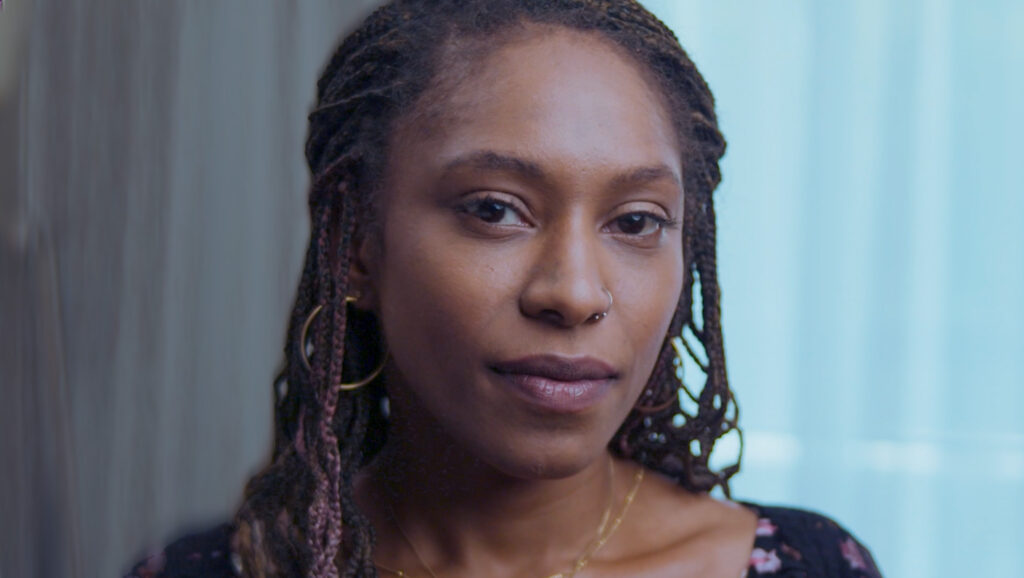
Six months later, Smith would be arrested and charged with felony child neglect for using marijuana while she was pregnant with Audrey—a crime that, in South Carolina, carries a penalty of up to 10 years in prison. Through a complex sequence of events, the charge also led to her losing custody of her second child, Aiden, for two years. Smith’s trial has been pushed back again and again; as of publication, it is set for February 19, 2024.
Smith is one of the hundreds of women in the U.S. who have been arrested—and, in many cases, had their children taken away—for behavior during their pregnancies, including the use of controlled substances both legal and illegal. These cases all hinge on fetal personhood, a legal precedent granting fetuses rights, often from the moment of conception.
In the year since the U.S. Supreme Court handed down Dobbs v. Jackson Women’s Health Organization, which ended federal protection of abortion, at least 27 states have included fetal personhood language in their anti-abortion laws. But some states were taking action long before Dobbs, often by using “chemical endangerment statutes”—originally enacted to protect children—to prosecute women like Smith.
Smith’s story shows how the same governments breathlessly passing abortion bans are using related legal theories to police pregnancy—and how the same laws that purport to protect unborn life can destroy families in the process, leaving parents, grandparents, and caregivers to navigate the complex web of social service agencies, law enforcement officers, prosecutors, and medical staff alone.
“WHEN YOU MAKE PLANS, GOD LAUGHS”
Lauren Smith, 31, had big dreams. In high school, she was one of the top three runners on her track team in Deerfield, Illinois. But in her last season, she went in for a physical and learned that she was pregnant. At 16, she chose to have the baby.
Her second pregnancy, in her mid-twenties, was equally fraught; she spent much of it in a shelter for pregnant women in North Carolina. Smith used marijuana during both pregnancies.
After she gave birth to her son, Aiden, she moved to Greenville, South Carolina, to be closer to her mother, Toni, and her eldest daughter, Aniyah. Aniyah had chosen to live with Toni full-time years earlier, so now Smith hoped to reconnect with the child she had had so young.
In Greenville, she found a job waiting tables and planned to finish her G.E.D. and go to school to study nursing or maybe law. Then, she met a man and fell in love; they moved in together. Within a year, she was pregnant. They celebrated by going out for tacos.
“I had never really been excited for a pregnancy,” Smith says. “They’ve always been surrounded by turmoil and shame and just sadness, so to speak. So it was nice to share it with a partner. I was excited; I was happy.”
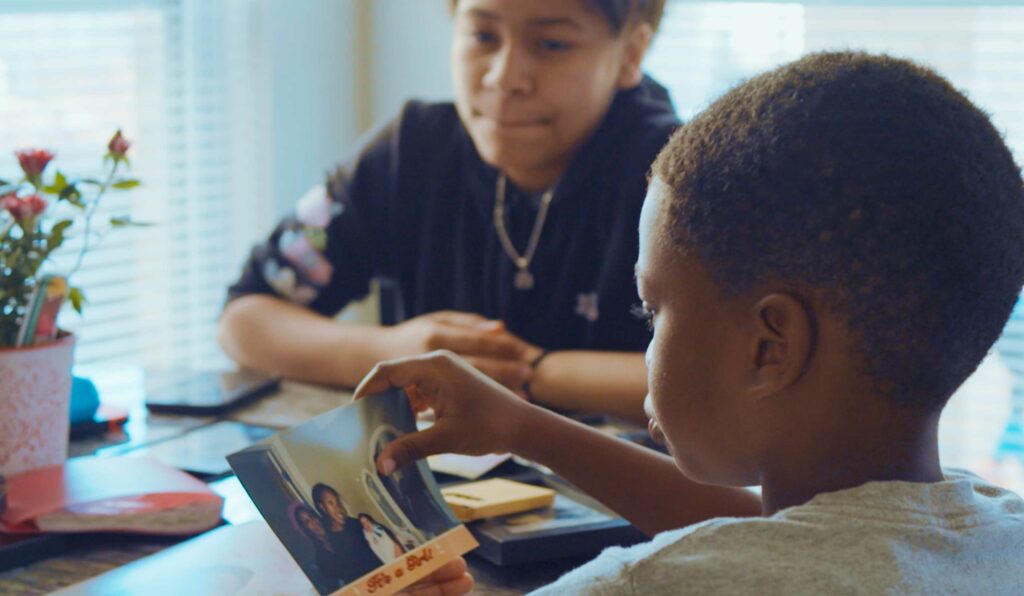
The couple thought of sweet ways to tell people their good news. For his mom, they gave her a gift: an ultrasound picture tucked into a tiny onesie.
“I had it all planned out,” Smith says. “‘I’m going to plan a baby shower, finally, for once. I’m going to be celebrated, and the baby’s going to be celebrated, and we’re going to get married.’ I just had all these plans and visions,” Smith says.
“They say when you make plans, God laughs.”
Over the course of her pregnancy, Smith’s relationship with her partner turned volatile. Their fights became increasingly intense, and then violent, according to Smith. Greenville’s Department of Social Services (D.S.S.) got involved when Smith was about six months pregnant after she ended up in the hospital with a severely dislocated shoulder. She spent a week in a domestic violence shelter with her 18-month-old son in tow. She says that the stress of D.S.S. scrutiny, an unstable relationship, and the physical demands of working in the service industry made a tough pregnancy even worse.
“It was morning sickness, afternoon sickness, night sickness,” she recalls. “It was miserable to the point where I would drink water, I would eat crackers, and it would just come up. There’d be times where I couldn’t even eat at all.” She was diagnosed with extreme nausea and vomiting, along with chronic dehydration and anemia. She had to go to the hospital to receive intravenous fluids and was advised to try to gain weight.
Smith’s mental health also suffered. She had prenatal depression and suicidal ideation, according to her medical charts. Her doctor prescribed Zoloft—which is safe during pregnancy—but it didn’t work for Smith. Her hair fell out while her anxiety and depression remained.
“I’M VERY OPEN WITH MY DOCTORS”
Whether or not Smith’s decision to self-medicate was safe is more a matter of opinion than indisputable science. The effects of marijuana on pregnancy and fetal or childhood development are uncertain. This is largely because it’s difficult to get Schedule I drugs—drugs the federal government claims have no medicinal value—approved for research and even harder to study their effects on pregnancy. “Most of our understanding is speculative and inferential,” says Peter Grinspoon, M.D., an instructor at Harvard Medical School and the author of Seeing Through the Smoke: A Cannabis Expert Untangles the Truth about Marijuana. (This August, the U.S. Department of Health and Human Services recommended recategorizing marijuana as a Schedule III drug, which would shift it from being lumped in with heroin and cocaine and put it in the same category as drugs like ketamine and testosterone.)
What research does exist is limited and, at times, contradictory. A 2020 survey by the National Institute on Drug Use shows that there is “no human research connecting marijuana use with miscarriage,” and a 2019 Columbia University study went further, concluding that cannabis by itself will not harm a fetus or impede its development. However, other evidence shows that, in rare cases, cannabis use could result in low birth weight and abnormal fetal brain development. There is no research on what the threshold is for these risks or whether there is a safe or therapeutic amount of cannabis a person can ingest while pregnant.
“If I needed to roll a joint and hit it a few times to be able to still take care of my other children and work and live, that’s what I did.”
This dearth of research has led medical associations, including the American College of Obstetricians and Gynecologists and the American Academy of Pediatrics, to recommend that patients abstain from using cannabinoid products while pregnant or breastfeeding.
At her second prenatal appointment, Smith told her OB-GYN that she was using marijuana medicinally. “I’m very open with my doctors,” she explains. “I feel like the only way they can help you is if you tell them everything. So I informed my doctor when they asked—I said I do smoke marijuana because it definitely helps with certain pregnancy symptoms that are hard to deal with.
“It wasn’t like I was doing bong rips or anything,” she says. “If I needed to roll a joint and hit it a few times to be able to still take care of my other children and work and live, that’s what I did. And I didn’t get any medical advice advising to steer away from it, or that it would cause any issues to the baby or to me, ever.” According to Smith, her doctor told her only that she should stop smoking marijuana 30 days before her due date to avoid a positive drug test.
Here, accounts of what happened differ. Smith’s medical chart states that someone “discussed the risks of [marijuana] use in pregnancy” with her, and both her medical chart and her social services files also note that she was advised to stop using cannabis and that a positive drug screen could have implications for her open social service case. Prisma Health, which owns both the clinic and the hospital where Smith was a patient, and the Department of Social Services did not respond to repeated requests for comment.
But Smith’s choice to self-medicate was not unusual: Marijuana is, in fact, the most common illicit drug used during pregnancy. A 2019 study by Kaiser Permanente Northern California found that more than seven percent of pregnant women reported using marijuana to treat depression, anxiety, stress, pain, and nausea, a jump from just four percent who reported doing so three years earlier. Young women were especially likely to have used marijuana during pregnancy—almost 1 in 5 of those ages 18 to 25 reported doing so. And race and economics are also a factor, with a higher percentage of Black, low-income women historically reporting cannabis use during pregnancy.
That makes sense to Amanda Williams, M.D, an obstetric-gynecologist, maternal care expert, and instructor at Stanford University’s School of Medicine. “When people have limited access to services,” she says, “then sometimes using something like THC to help manage their symptoms is a pathway that people choose to take. [There are] other means of managing depression and anxiety, like therapy, counseling, meditation, exercise—all of those things are possible. But if one doesn’t have access, especially someone with a psychosocially complex life, one can understand why they would seek other options.”
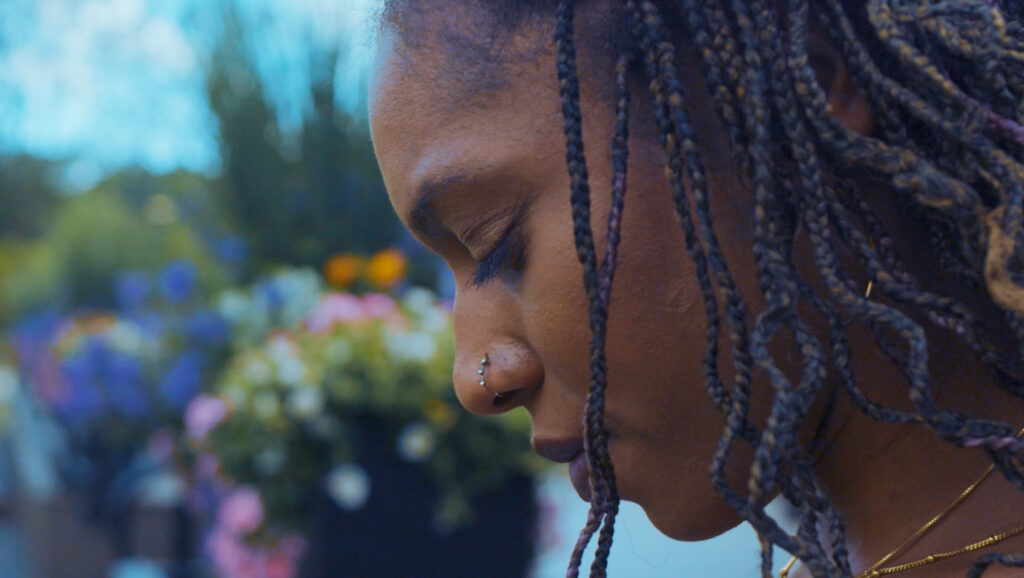
By the end of her seventh month, Smith says she had stopped using cannabis. On February 14, 2019, she arrived at the clinic for her OB-GYN appointment with her heart racing. The nurse took her vitals and told her that her blood pressure had spiked. At first, Smith thought it was because of stress: She had been fighting with her baby’s father on the way to the doctor’s office and had been experiencing preterm labor even while she worked long hours as a bartender, setting up and breaking down the bar. (“I have a high tolerance for pain,” she says.)
Now, at the clinic, the doctor was telling her she had extremely high blood pressure. She would be diagnosed with gestational hypertension. “If we don’t get this baby out,” Smith remembers the doctor saying, “you could die.”
What she says she did not realize was that that day, the medical center collected her urine for a drug screen. That drug panel, analyzed at Greenville Memorial Hospital’s lab, came back negative for everything except THC, the main psychoactive compound in cannabis.
The baby went through two rounds of drug testing. Her urine came back negative for all substances, so the hospital tested her meconium, which includes the remnants of materials ingested throughout the pregnancy. That test came back positive.
Marijuana testing is famously imprecise. Sources in both Greenville Memorial Hospital and Quest labs confirmed that the numerical results of THC tests simply show that Smith had used the drug at some point while pregnant but can’t reveal when the drug was ingested.
THE NEXT FRONTIER OF ANTI-ABORTION LAW
Fetal personhood laws have been a rallying cry for anti-abortion activism since long before the fall of Roe v. Wade.
Indeed, the legal theory was pioneered 26 years ago—in South Carolina, in fact—with the landmark 1997 Whitner v. State of South Carolina decision, which found that not only did a fetus have all the rights and privileges of a person under the age of 18, but that it was in the state’s best interest to protect them.
The case hinged on the experience of a woman from Easley, South Carolina, named Cornelia Whitner, a Black woman. In February 1992, she delivered her third child, a boy. Her urine and his came back positive for trace amounts of crack cocaine.
It was the time of the so-called War on Drugs, and South Carolina required hospitals to drug test every pregnant person at delivery—a law the U.S. Supreme Court would rule unconstitutional, but not until 2001, too late for Whitner. She was charged with felony child neglect and went on to serve eight years in prison.
Whitner appealed her conviction; a lower court overturned it, but then the state’s Supreme Court, in a three-man majority, ruled that a viable fetus had the same rights as a child and the conviction should be upheld. Fetal personhood had become legal precedent.
South Carolina’s then-Attorney General Charlie Cordon was the driving force behind the state’s argument. He had built his career prosecuting pregnant women who were struggling with addiction, and he also prosecuted health care workers, social workers, and drug counselors who didn’t report a mother’s drug use.
The effect of the court’s decision was immediate. In the year after the Whitner decision, The New York Times reported that 23 pregnant women who tested positive for crack cocaine in South Carolina had been charged with child neglect. Of those, 22 were Black. “I can’t help the fact that [crack cocaine] is the drug of choice for Blacks,” Cordon said at the time.
For the next decade, largely because of Cordon and Whitner, South Carolina led the country in pregnancy criminalization cases, according to a review of national data by Pregnancy Justice, a nonprofit that advocates for pregnant people caught in the criminal justice system. In hindsight, the Whitner decision and its legal champion Cordon were an early bellwether for where the anti-abortion movement is now. A new report from Pregnancy Justice found that between 2006 and 2022, as abortion protections began to atrophy across the country, cases of pregnancy criminalization tripled. Although they happened everywhere—in 46 states and territories—the vast majority can be traced to five states—Alabama, Tennessee, Oklahoma, and Mississippi, alongside South Carolina. In a few cases, women who experienced stillbirths and miscarriages were charged with homicide and jailed, but most cases, like Smith’s, involved women who were charged with felony child neglect or abuse after they or their infants tested positive for a controlled substance. Most of these cases were brought forward by medical and/or social service professionals, including doctors and case workers.
And since Dobbs, legislators around the country have been writing fetal personhood into law, making these cases easier to bring. Because of the legal concept of fetal personhood, “pregnant people have fewer rights than people who aren’t pregnant,” explains Trip Carpenter, a legal fellow with Pregnancy Justice. “If you are pregnant and you do something that allegedly puts your fetus or your pregnancy in harm, you could be charged with [a] crime.
“If you’re pregnant and you fall down the stairs, you could be charged with a crime,” he says. “If you’re pregnant and you drive without a seatbelt, you could be charged with a crime. If you’re pregnant and you have a glass of wine, or you use drugs, you could also be charged with a crime.”
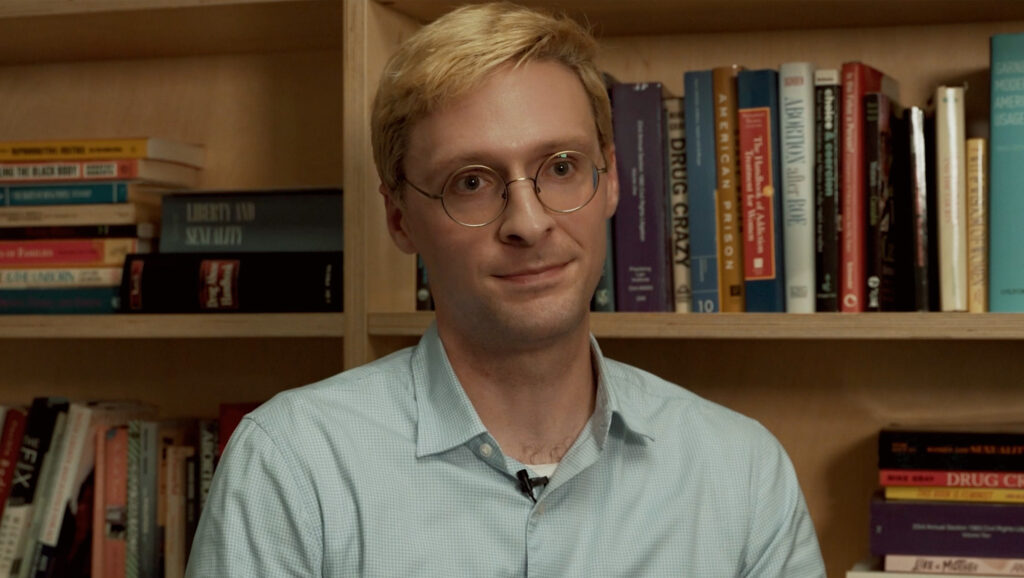
And balancing the rights of a parent and a zygote or fetus isn’t straightforward, either. “Let’s look at extreme morning sickness,” says Robert Ianuario, a criminal defense attorney in Greenville who specializes in marijuana laws. “The mother can’t keep food down; the child’s not getting properly nurtured. If the mother smokes marijuana, doesn’t have the nausea, and can eat, then the child’s getting more nourishment. How do you balance that?”
Expanding fetal personhood has far-reaching implications. It could limit people’s ability to undergo IVF treatments or take needed prescription drugs. Also, as fetal personhood takes hold nationally, it falls to the discretion of individual prosecutors to decide which cases should be pursued to the full extent of the law and which ones should not. That level of discretion means that pregnant people are more vulnerable to criminal prosecution than ever before.
“Child neglect is a catchall to catch all of these people we consider throwaway people or people we don’t like,” says Carl Hart, PhD., one of the authors of the Columbia University study on cannabis and pregnancy and the author of the book Drug Use For Grown-Ups: Chasing Liberty in the Land of Fear. “You don’t have to say you don’t like them. You just put them under this category.”
A FAMILY TORN APART
Even after losing custody, Smith tried to breastfeed Audrey as she had her older children. For the first six weeks of Audrey’s life, she would wake up early—around 4 a.m.—and drive to the home of the paternal grandmother who has custody of Audrey to feed her daughter.
It was on one of these mornings in April, when Smith was holding Audrey, that Detective Robert Perry of the Greenville Sheriff’s Department called. Smith’s case had been referred to the police on March 21, 2019. She didn’t know she was under investigation. Perry recorded the call without her knowledge, a practice that is legal in South Carolina.
The Meteor acquired a copy of the recording and has reviewed it.
Perry asked if she had used marijuana recreationally, and she said no. She had been using it therapeutically and detailed her symptoms. “Well, that doesn’t sound like a wonderful trimester for you,” he said. “You poor thing.”
Perry acknowledged that the science is not clear about whether marijuana is harmful to the fetus or not.
“I’m not trying to give you a hard time,” he said, “but I’m also trying to be real plain with you, too. You could be facing criminal charges, and you might not be. A lot of parents, especially parents of kids are born with heroin or meth in their system, there’s no mercy for them. They get charged. Marijuana’s a little bit different.” As long as the parent cooperates, he explained, the state will work with them.
“I will touch base with you again,” he said, “I promise.” Smith never heard from him again.
Smith did not realize that on the basis of that phone call, a warrant would be issued for her arrest in May. It claimed that “the defendant placed her unborn child at risk of harm by exposing the child to marijuana while still in the womb. By exposing this child to this illegal drug, she affected the child’s life, health, and safety.” The charge: unlawful neglect of child or helpless person—a felony.
“Pregnant people have fewer rights than people who aren’t pregnant.”
Greenville’s Sheriff Department would not comment on the specifics of this case, but said that Detective Perry acted appropriately and within the law.
The police came for Lauren Smith on August 19, 2019. She remembers the sound of police cars screeching to a stop in front of the small townhouse—lights on, sirens blaring. She remembers officers and K-9 units—dogs—pounding up the short stoop, banging on the door. She remembers an officer swooping down to pick up her baby, who woke up screaming.
Initially, officers said they were there because Audrey’s paternal grandmother, who has custody of the child, thought there was a chance Smith would leave the state with the baby, which would have been considered custodial interference. Once Audrey was located, the paternal grandmother declined to press charges—but instead of leaving, officers executed the open warrant for marijuana use and arrested Smith. They handcuffed her. They handcuffed her aunt. An employee with social services took Audrey back to her paternal grandmother, and Smith was held in jail for three days.
On the third day, she was driven to family court for a hearing concerning the emergency removal of her son, Aiden. In cases of alleged unlawful conduct toward a child, all of the children are at risk of being taken from their homes and being placed with relatives, family friends, or into emergency foster care. That day, a worker from social services showed up at Aiden’s daycare and drove him away, placing him in care.
For weeks, Smith’s mother, Toni, says, the morning Aiden was taken from her replayed in her mind. Aiden “didn’t want to go to school,” she recalls. “I finally convinced him to go, and we got in the car, and I dropped him off. I didn’t know he wouldn’t come home for almost three years.”
Eventually, Aiden was placed in foster care, and for two years, the state pushed to end Smith’s parental rights. She had to have supervised visitation not just with her baby girl, but with her son as well. But she and her mother fought back.
Toni cleaned houses, and Smith managed a Domino’s Pizza; both pulled together money to pay for lawyers and for Smith to undergo state-sanctioned treatment plans, including what felt to her like an endless series of mandated programs: drug treatment, parenting classes, and both domestic violence victim and perpetrator classes, even though she had never been accused of violence against her children.
During this period, Smith was in and out of a tumultuous relationship with Audrey’s father. She says she felt trapped in their cycle—he promised to change, and she wanted her family together, especially as his mother had custody of Audrey. She says things would be okay for a while and then become toxic again. She struggled with her mental health and suicidal ideation.
Eventually, however, Smith was able to complete her treatment plan, and, in 2022, a family court judge ordered Aiden to be returned to his mother and their family. “He still hasn’t recovered,” Toni says.
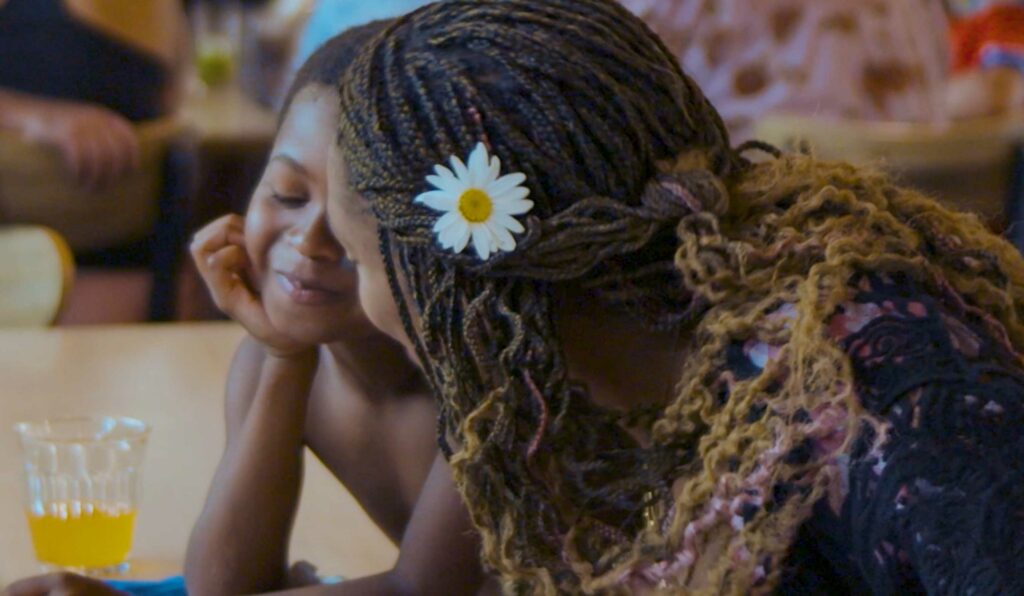
In the meantime, Smith’s criminal trial has been delayed over and over.
At one point, Smith also was offered a plea deal—her charge would have been reduced to misdemeanor cruelty to a child—but she rejected it. “I don’t believe in pleading to something I didn’t do,” she says. According to data collected by the public defender’s office of Greenville County, at least 35 women across South Carolina have been charged with unlawful neglect of a child for cannabis use while pregnant. Smith’s is the rare case to go to trial.
“A lot of these cases start by prosecutors taking laws that already exist and applying them in ways that the legislator do not intend, or even sometimes applying laws that don’t exist at all to prosecute pregnant people,” explains Carpenter of Pregnancy Justice. “These cases are really driven by prosecutorial discretion.
“Even in a state like Alabama,” he continues, “which prosecutes these cases at a higher rate than any other state in the nation, over half of the prosecutions happen in one county, [Etowah]. They’re driven by one prosecutor wielding their discretion in a really aggressive fashion. So it’s really important to keep an eye on that granular level.”
But in July, Smith’s prosecutor left the office, and another was assigned to replace her. (A spokesperson from the 13th Circuit Solicitor’s Office declined to comment on this case.)
“I just want this to be over,” says Smith. “I just want whatever life I have left back.”
FIGHTING THE LAW, YEAR AFTER YEAR
By the time the judge evaluates the merits of Smith’s criminal case, it will have been five years and a day since Smith gave birth to her youngest.
Smith and her family—especially her children, Aiden, Aniyah, and Audrey—have each paid a steep price for the state’s commitment to her criminal prosecution. Smith sometimes lapses into serious depressive episodes, especially after visits with Audrey.
“I feel really guilty because I have kids and a son that I fought for, but I’m tired of feeling stuck. I’m tired of being unhappy,” Smith says. “I’m angry and I’m mad because—I don’t know. I’m angry at myself, at the circumstance, at the situation, at all of it.”
Audrey still lives with her father’s mother. By all accounts, she’s well cared for and deeply loved, but she wants her mother. After every visit, Smith says that Audrey asks if she can leave with her. Smith has to tell her daughter that she cannot.
To date, there is no evidence that Audrey has suffered developmentally or physically because of her mother’s marijuana use during pregnancy. “Her baby was healthy at birth,” Carpenter points out. “Her baby is still healthy. Her toddler, I should say, is still healthy.” The state’s behavior, however, has tormented Smith, and her mother, Toni, is witness to her daughter’s pain. “I’ve long stopped sleeping,” she says. “I wake up in the middle of the night, scared of what Lauren might do—to herself. She’s undone by this. I’m worried about what this has done to her.”
“Her baby is still healthy. Her toddler…is still healthy.”
Carpenter believes Smith’s case could have broad implications, both on a state and national scale. “If she were to be convicted, it would tell pregnant people in South Carolina and pregnant people in other states that prosecute these types of crimes, you are right to be suspicious of your healthcare providers, and you should think twice before you go to the doctor, which is horrifying.”
But Smith is determined to see this case through. “It just enrages me how, as a woman, as a woman of color, as a human being, carrying a baby—and to be treated like nothing, like a criminal,” Smith says. “I am telling you, I didn’t go through this for no reason.”
She says that telling her story and having it heard has given her purpose—a reason to endure what has otherwise felt like a hopeless and neverending reality.
“I want to prove that just because you are scared, it doesn’t mean that you give up. You have to push through the fear,” she says. “I’ve been afraid of a lot of things, but I wouldn’t be here today if I wasn’t afraid and persevered through that.”
If you or someone you love is thinking about suicide, you can call or text 988 for confidential support.

Neda Toloui-Semnani is an Emmy-winning journalist. Her work has appeared in numerous publications including VICE News, The Cut, and The Washington Post, among others. Her first book is They Said They Wanted Revolution: A Memoir of My Parents. Please visit www.nedasemnani.com for more information.